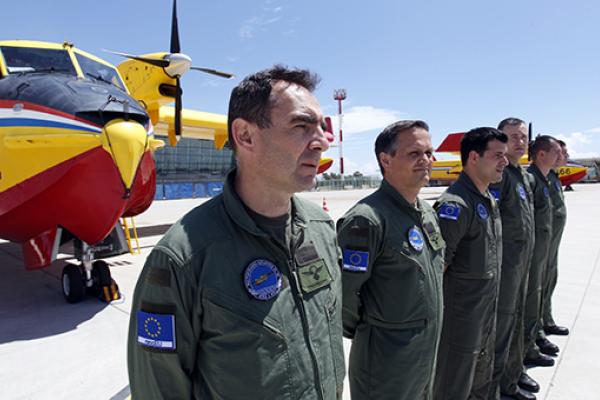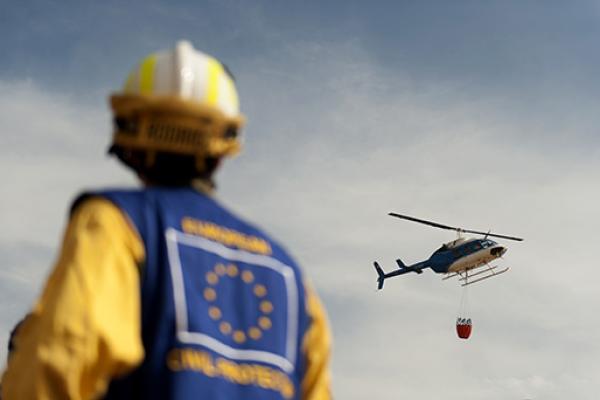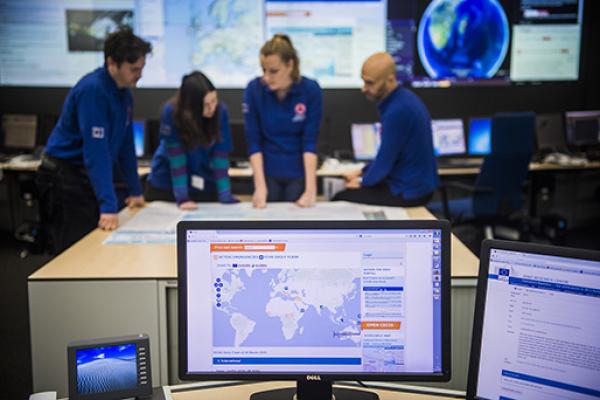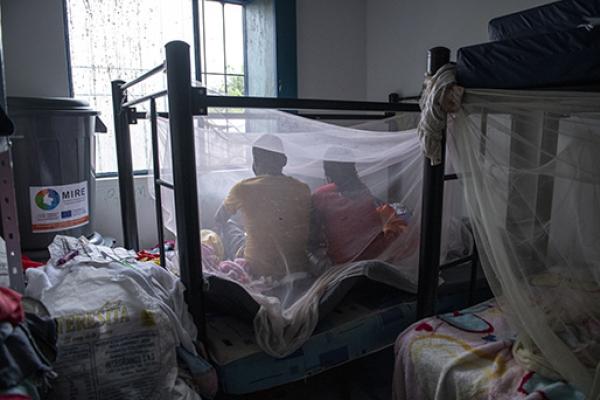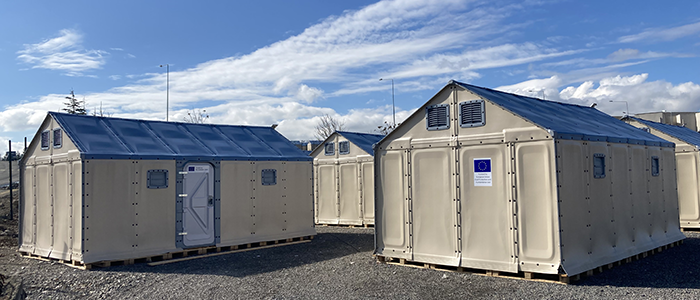
To further strengthen emergency response, the EU is developing its own shelter reserves that can be deployed in the context of crises or disasters that overwhelm national response capacities.
The EU is today allocating €116.6 million to Croatia, Poland, Slovenia, Spain, Sweden and Türkiye to procure and host new rescEU shelter reserves able to accommodate thousands of people.
These reserves will consist of high quality emergency shelter units such as light prefabricated structures, flat-pack containers and emergency tents.
The living units will be complemented by other facilities such as showers and toilets, industrial kitchens, laundry and communal areas, with special attention paid to safe spaces for children and the most vulnerable.
The reserves have been developed to provide a high degree of comfort in an emergency context, while ensuring rapid deployment. Moreover, 20% of the units as well as the communal spaces have been designed for people with mobility problems or disabilities, to ensure accessibility for all.
The reserves ensure lower environmental impacts at all stages of the project. This is the case within:
- the manufacturing process: reducing waste, minimising transport with components produced in Europe and choosing recycled or reusable materials
- deployment: with innovative designs that minimise cargo volume and with a geographical repartition that will minimise travel distances.
Environmental aspects are considered in the use of the shelter units. This includes water purification and atmospheric caption systems to reduce bottled water usage, as well as solar panels, efficient generators for electricity, and recycling facilities.
The first shelter units will be available within the next year to support EU Member States or participating states of the EU Civil Protection Mechanism in case of a need to rapidly host high numbers of people.
Commissioner for Crisis Management, Janez Lenarčič, said: “During the past years we have seen more and more displacement: within and outside of Ukraine’s borders because of Russia’s horrendous war, in Türkiye and Syria as a consequence of the massive earthquakes, but also here in the EU due to increasing threats such as recent floods and wildfires. Given the changing risk landscape in Europe and beyond, we have been building up various material reserves at the EU level to support eventually overwhelmed national capacities.”
“In addition to medical, forest fire fleet, energy and CBRN reserves, the EU is now adding another layer to our rescEU reserves with a shelter capacity. This is a major step in the EU’s crisis response as it enhances our preparedness for sudden large-scale movements of people. Shelter is a basic human need, but it’s far more than just a roof over one’s head. Shelter provides security, protection and dignity to people uprooted from their homes,” Commissioner Lenarčič added.
Background
The rescEU emergency shelter reserve includes temporary sleeping units, showers, toilets, basic toiletry kits, and communal spaces for gathering or eating. The Commission has also procured thousands of beds that can be used in temporary accommodation centres to welcome refugees or internally displaced persons.
This new reserve comes in addition to the previously allocated €62.3 million for emergency shelter and a stock of beds to be used for the Ukraine crisis in emergency reception centres. From this initial rescEU reserve, 3,000 equipped relief housing units and almost 5,000 additional beds were deployed to Ukraine and neighbouring countries such as Slovakia.
Furthermore, 500 units and 2,000 emergency tents were sent to Türkiye following the earthquakes. These emergency units have the capacity to host up to 25,000 people and are also being used as day centres or ‘‘heating points'', where affected population can receive information, get a warm drink while charging their phones, or children can safely play.
Following the activation of the EU Civil Protection Mechanism, rescEU provides an extra layer of protection and ensures a faster and more comprehensive response to disasters.
The rescEU reserve is 100% EU-financed and the European Commission maintains, in close cooperation with the country hosting the reserve, control of their operation. In an emergency, the rescEU reserve provides assistance to all EU Member States, Participating States to the Mechanism and can also be deployed to EU neighbouring countries.
Details
- Publication date
- 4 April 2023
- Author
- Directorate-General for European Civil Protection and Humanitarian Aid Operations (ECHO)

